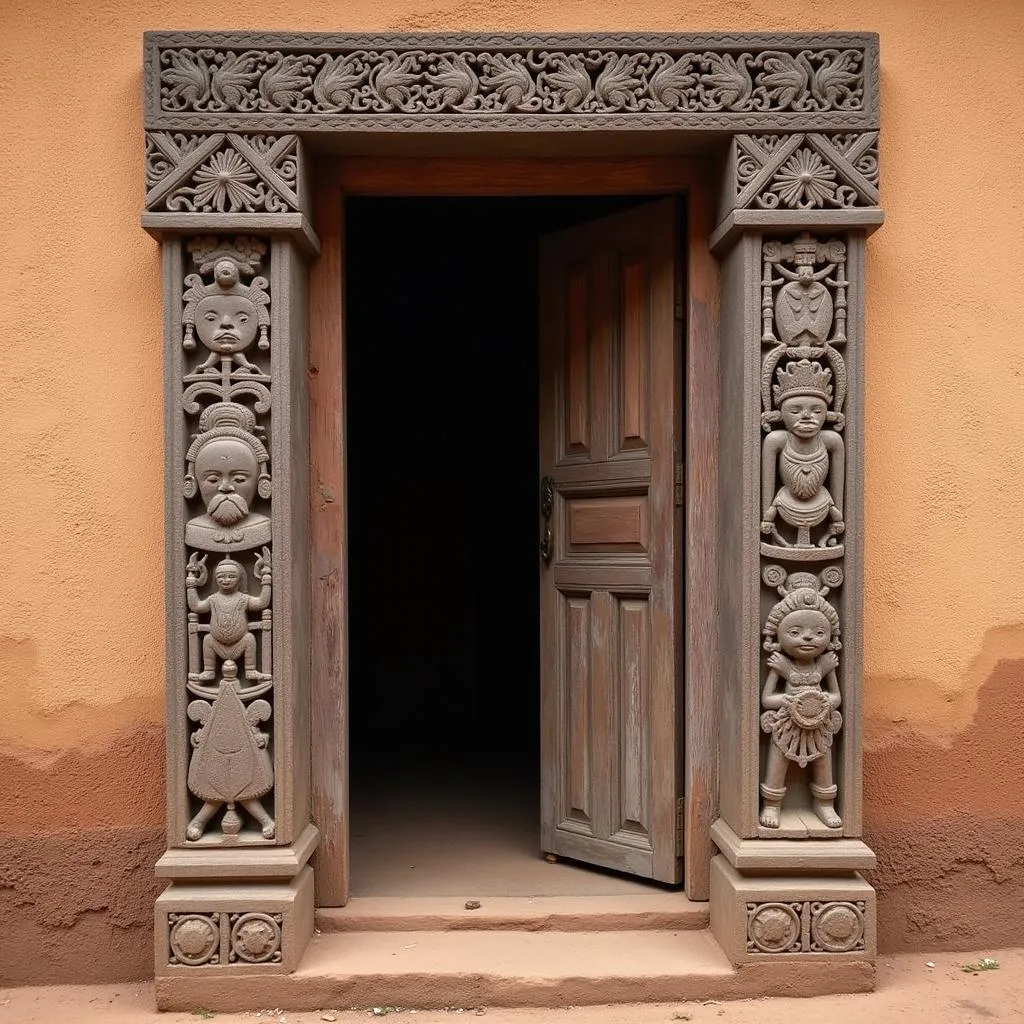Celebrating African American Doll Makers: A Rich Heritage
African American Doll Makers have played a crucial role in shaping cultural identity and representation for generations. From crafting dolls as a form of resistance during slavery to creating thriving businesses today, these artisans provide children with dolls that reflect their own image, fostering self-love and pride. This article delves into the history, significance, and evolving landscape of African American doll making.
African American doll making has deep roots in both necessity and artistry. During slavery, enslaved Africans often crafted dolls from scraps of fabric, corn husks, and other readily available materials. These dolls weren’t just toys; they were symbols of hope, resilience, and cultural continuity, passed down through generations and carrying stories of ancestral heritage. This tradition continued through the Jim Crow era, with doll making serving as a powerful act of self-affirmation in a society that often denied Black children positive representation.
The Significance of Representation: Why African American Dolls Matter
The lack of representation in mainstream doll manufacturing historically meant that Black children often played with dolls that didn’t look like them. This can have a profound impact on self-esteem and a sense of belonging. African American doll makers address this gap by providing dolls with a variety of skin tones, hair textures, and facial features that reflect the diversity within the Black community. These dolls are not just toys; they are affirmations of beauty, worth, and cultural pride. african doll different type making
The Rise of Black-Owned Doll Businesses
The latter half of the 20th century saw a significant rise in Black-owned doll businesses. Entrepreneurs like Beatrice Wright and Sara Lee Creech recognized the market need for culturally relevant dolls and built successful businesses catering to this demand. They paved the way for a new generation of African American doll makers who continue to innovate and expand the representation of Black beauty. What were the initial challenges they faced? They faced challenges such as limited access to capital, discrimination in the marketplace, and the struggle to gain recognition in a predominantly white industry. However, their perseverance and dedication led to the creation of iconic doll brands that continue to inspire.
African American Doll Making Today: A Thriving Art Form
Today, the African American doll making landscape is vibrant and diverse. african dolls south africa From handmade cloth dolls to meticulously sculpted porcelain creations, artists are exploring a range of materials and techniques. Many doll makers also incorporate traditional African textiles, patterns, and hairstyles into their designs, further celebrating their heritage. The internet and social media have also played a significant role in connecting doll makers with a wider audience, fostering community, and promoting their work.
“The creation of each doll is a labor of love,” says renowned doll artist, Dr. Anika Johnson (fictional). “It’s about instilling pride in our children and ensuring they see themselves reflected in the toys they play with.”
Beyond Playthings: Dolls as Cultural Artifacts
African American dolls are more than just playthings; they are cultural artifacts that tell stories, preserve history, and celebrate heritage. They are tangible representations of resilience, creativity, and the enduring power of cultural expression. african dolls for sale
“Dolls can serve as a powerful tool for educating future generations about their history,” adds Dr. Johnson. “They are a gateway to understanding our past and appreciating the contributions of African Americans to art and culture.”
In conclusion, African American doll makers have made, and continue to make, an invaluable contribution to Black culture and representation. Their artistry and dedication ensure that Black children have access to dolls that reflect their beauty and affirm their identity, strengthening their sense of self-worth and cultural pride. african american culture in the 1970s These artisans are not just creating dolls; they are shaping narratives, preserving history, and empowering future generations. african bag art
FAQ:
- Where can I find African American dolls for sale?
- What are some prominent African American doll makers throughout history?
- How have African American dolls evolved over time?
- What materials are traditionally used in African American doll making?
- Why is representation in dolls important?
- How can I learn more about the history of African American doll making?
- Are there museums or collections dedicated to African American dolls?
Need assistance? Contact us 24/7 at +255768904061, email kaka.mag@gmail.com, or visit us in Mbarali DC Mawindi, Kangaga, Tanzania.


